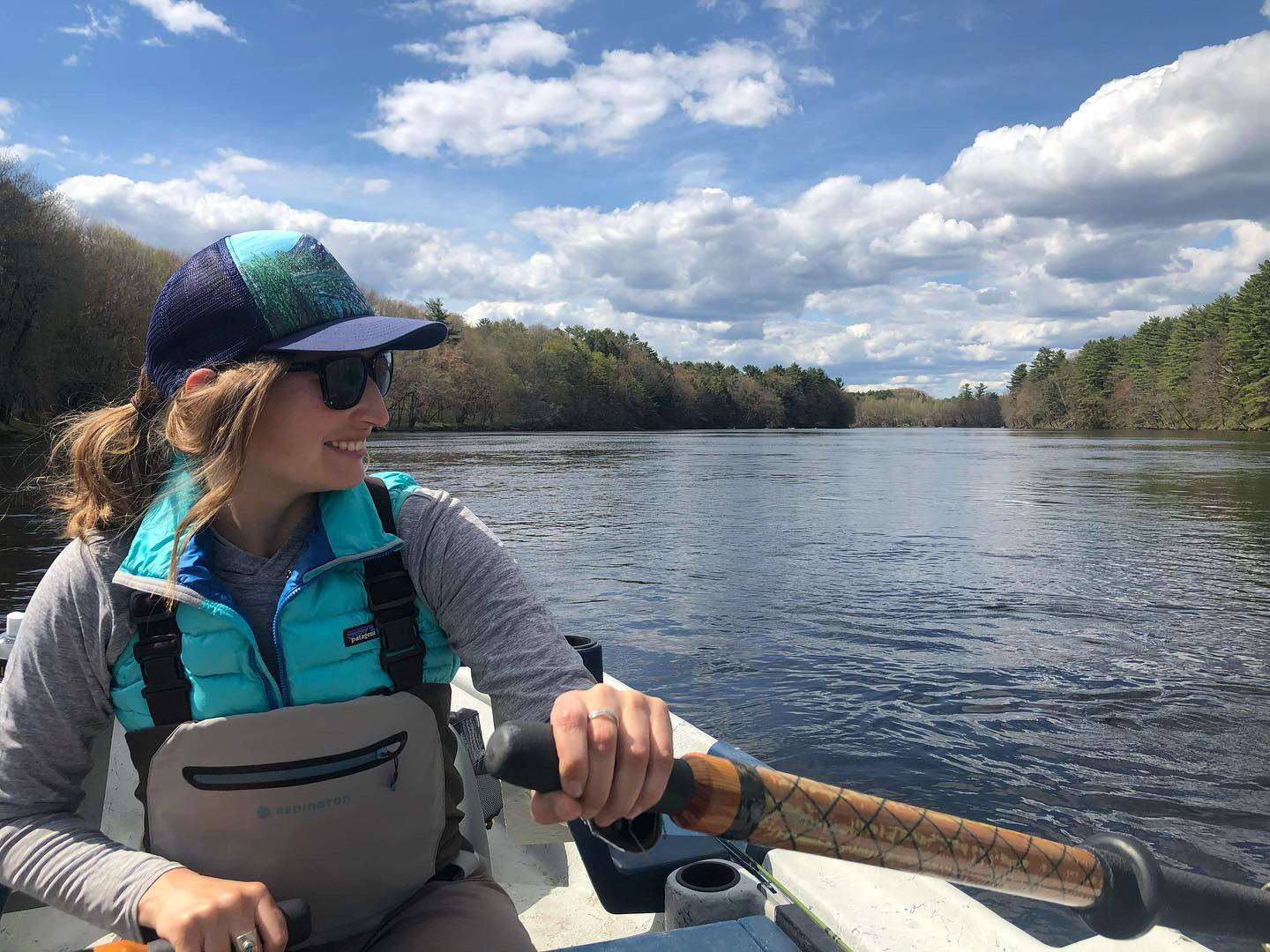Our new Oregon Policy Manager has a history of helping the state’s forestry laws catch up with its neighbors. Now she’s working to make Oregon a true conservation leader.
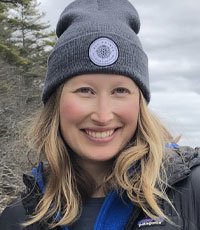
For Stacey Detwiler, Wild Salmon Center’s new Oregon Policy Manager, the road to salmon conservation began underground, in stormwater pipes and other urban waterways.
“I was fascinated by this hidden source of pollution that happens every time it rains,” says Detwiler, who grew up in a small town along the Schuylkill River, near Philadelphia.
After designing a retrofitted rain garden on her college campus, Detwiler’s search for fresh solutions to pollution led her to an early career working on federal clean water policies in Washington, D.C., for American Rivers.
In 2014, she moved west to Corvallis to pursue an M.S. in Water Resources Policy and Management at Oregon State University.
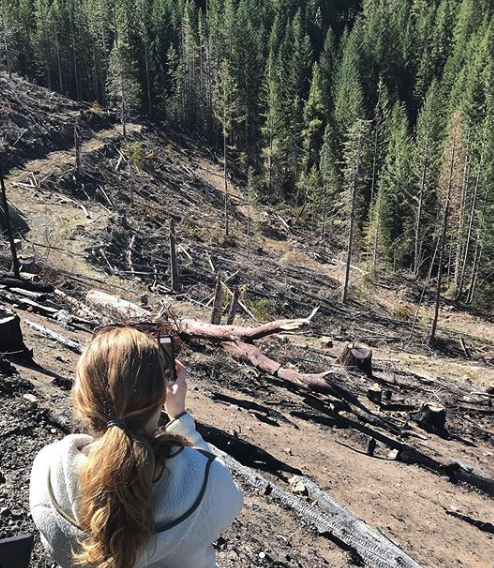
And it was here that Detwiler fell in love with the Pacific Northwest—despite, or perhaps because of the fact that it wasn’t how she’d had imagined it.
“There’s this perception of Oregon as progressive and super green,” she says. “When you’re hiking around or even flying in and seeing the clearcuts, you can see that there’s just a lot of room to improve.”
Detwiler sensed hidden problems—and potential opportunities. At OSU, Detwiler dove deeper into western forest law, comparing the management of forest roads on private industrial forestlands in the West Coast.
“The reality, when you look at the laws, is that Oregon was pretty far behind its neighboring states in protecting forests and fish,” Detwiler says. “But one upside to being behind is that you can see how laws and industries operate successfully elsewhere, and tailor that to what could work in Oregon.”
“When you look at the laws, Oregon was pretty far behind its neighboring states. But one upside to being behind is that you can see how laws and industries operate successfully elsewhere, and tailor that to Oregon.”
WSC Oregon Policy Manager Stacey Detwiler
After graduation, Detwiler led multiple campaigns to protect and restore clean water in the Rogue watershed as the Conservation Director for Rogue Riverkeeper, a small advocacy group in southern Oregon.
While at Rogue Riverkeeper, Detwiler led a coalition that successfully passed a new state law in 2017 that prohibits suction dredge mining in more than 20,000 river miles of salmon habitat across the state.
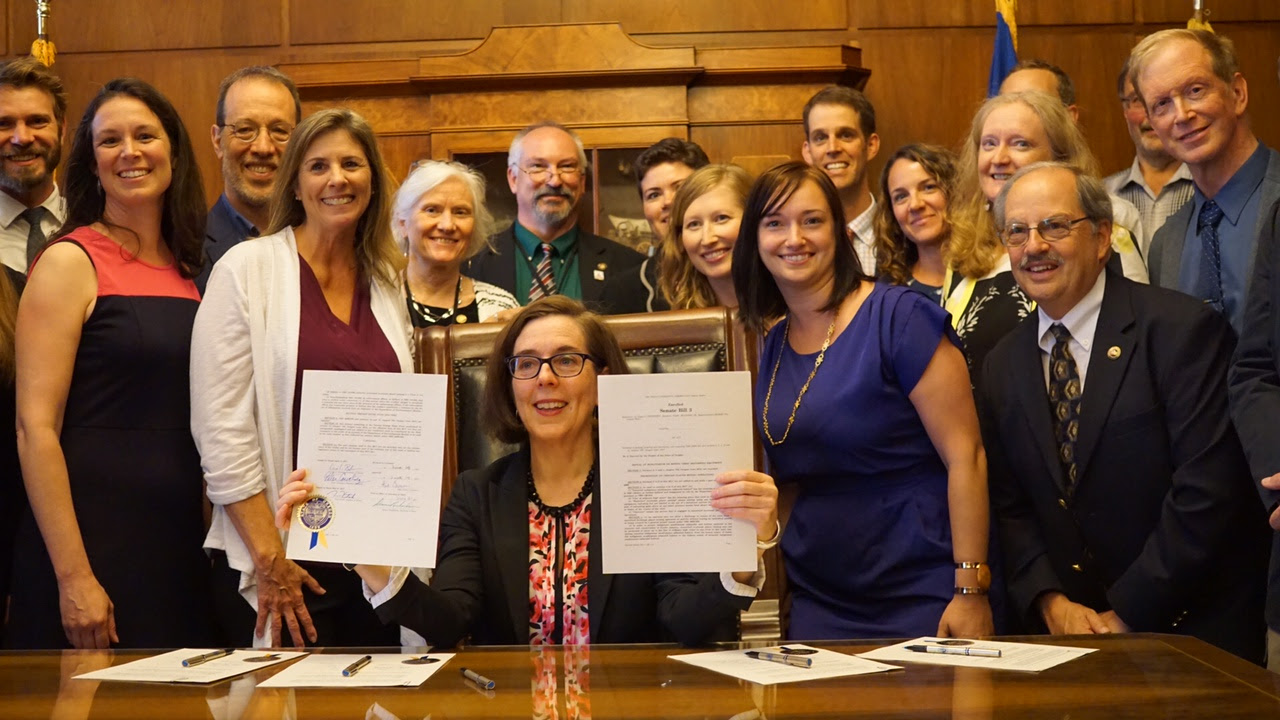
Detwiler also led a coalition working with landowners, grassroots organizations, and other nonprofits to ultimately defeat the proposed Jordan Cove LNG pipeline project in southern Oregon.
And she advocated for increased riparian protections on private industrial forestlands in the Rogue-Siskiyou region—a campaign in which she forged an early working relationship with WSC Oregon Policy Director Bob Van Dyk.
Detwiler went on to work closely with Van Dyk and others to develop and secure passage of 2022’s monumental Private Forest Accord: a package of new laws that will better protect wild salmon streams on more than 10 million acres of private forestlands.
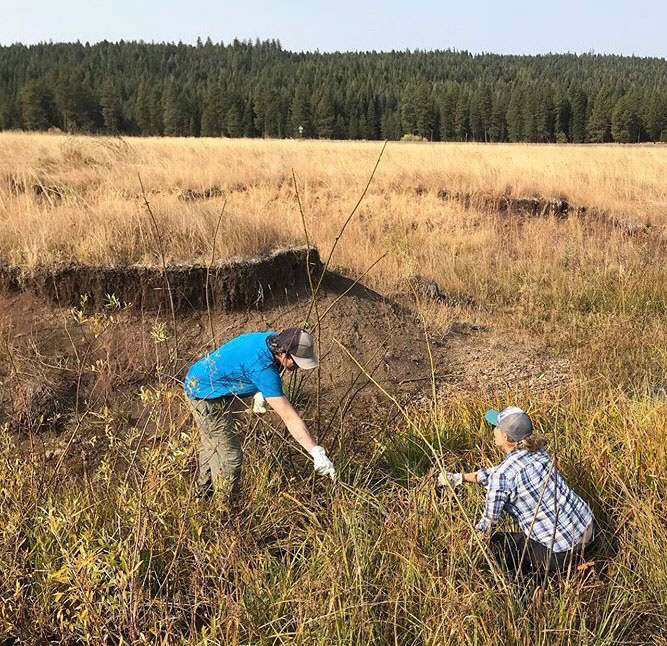
Now, at WSC, Detwiler brings her twelve years of experience to a powerful team that’s reforming Oregon law on conservation issues from private and state forestry to water policy.
“One of the many reasons I’m excited to work with WSC is the technical and capacity-building strength of this team,” Detwiler says. “I’ve seen firsthand how WSC invests in and empowers small grassroots groups. Now I’m excited to play a larger role in building these networks to conserve and restore stream flows, as well as advance climate-smart forestry reforms to better protect wild salmon streams.”
“I’ve seen firsthand how WSC invests in and empowers small grassroots groups. Now I’m excited to play a larger role in building these networks to conserve and restore stream flows, as well as advance climate-smart forestry reforms to better protect wild salmon streams.”
WSC Oregon Policy Manager Stacey Detwiler
